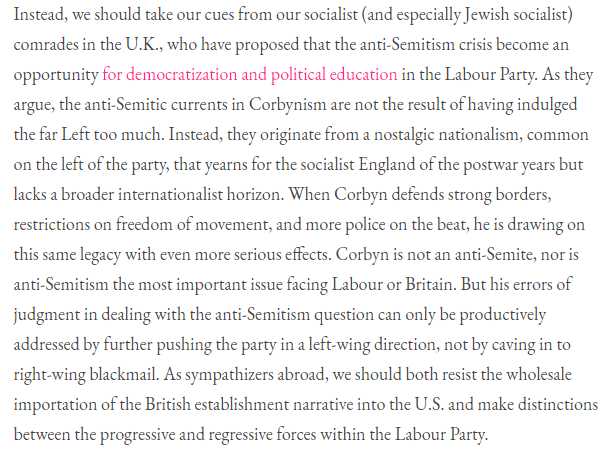A largely unacknowledged context for the mid-2020 COVID passion play on the liberal left was that all the energy formerly invested in open borders/global citizen sentiment had to go somewhere when those borders were suddenly shut indefinitely.
For universities, this borders crisis had real financial ramifications. The lucrative international student market on which their budgets were increasingly reliant largely disappeared, forcing to them to fall back on recruiting from the formerly neglected domestic student market.
The resulting recruitment panic largely explains universities' collective embrace of the decolonising agenda: the need to maximise recruitment from a racially diverse domestic student body while simultaneously in competition with other universities all pursuing the same strategy.
Open borders sentiment on the left (including the Marxist left) resulted from attitudes and false equivalencies like those found in this 2019 Current Affairs article by Greg Afinogenov (Georgetown). https://www.currentaffairs.org/2019/02/how-to-think-clearly-about-anti-semitism-controversies-in-the-labour-party
Nationalism, and the desire for (or even possibility of) controlling borders is described as "regressive" and "nostalgic," an inherently problematic concept even if the broader population outside the radical left and libertarian right overwhelmingly supports it.
While Afinogenov, I'm sure, rejects modernisation theory, he is completely oblivious to the teleological or progressive framing in his own argument, where it's made imperative that "we" as left-wingers must "push" for open borders.
And yet this moral imperative rests on a total mystification: that the open borders ideal represents the "broader internationalist horizon" of the Marxist imaginary (largely a fantasy) rather than the actually existing world of neoliberal (and neo-imperialist) capitalism.
It's this mystification (or false equivalence) that explains the strange, yet now pervasive, spectacle in which elements of the Marxist left support anarcho-capitalist ideas using the arguments from inevitability ("there is no alternative") formerly associated with neoliberalism.
It's this combination of pre-existing tendencies that explains the channels through which the frustrated energy of the "global citizen"/open borders were funnelled in 2020.
They went towards coordinated acts of mass protest that dramatised global solidarity. That solidarity was expressed through the deliberate mimicry or adoption of American languages, labels, and ideologies, no matter how jarring the juxtaposition appeared in non-American contexts.
Indeed, that jarringness was to some degree no doubt intentional. It made real and manifest the otherwise nebulous "broader internationalist horizon" (though in practice it was indistinguishable from a form of aggressive American neo-imperialism).
These protests were accompanied by uniform decolonisation initiatives in universities and the heritage sector, which involved a similar wholesale import of American ideology and labels. Again, neo-imperialism was mystified as a form of internationalism or "global solidarity."
Finally, low-status domestic population groups were stigmatised and scapegoated for "spreading the virus" and thus delaying a collective return to "normality" (in other words, the return of the fluid-borders world of 2019, now represented as a millenarian ideal).
Developing ideas from this thread by @daily_barbarian: https://twitter.com/daily_barbarian/status/1341772841855926274?s=20

 Read on Twitter
Read on Twitter


